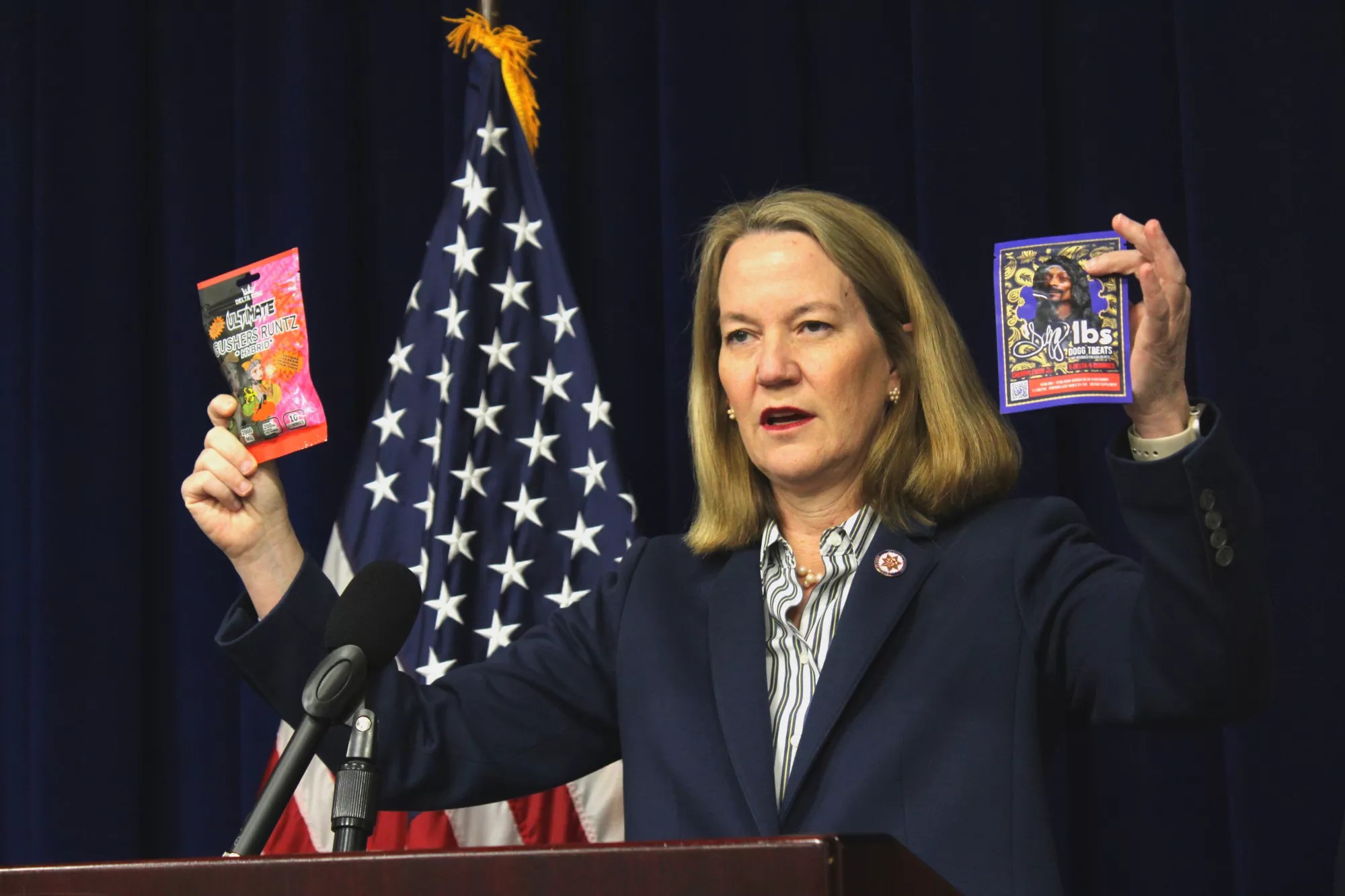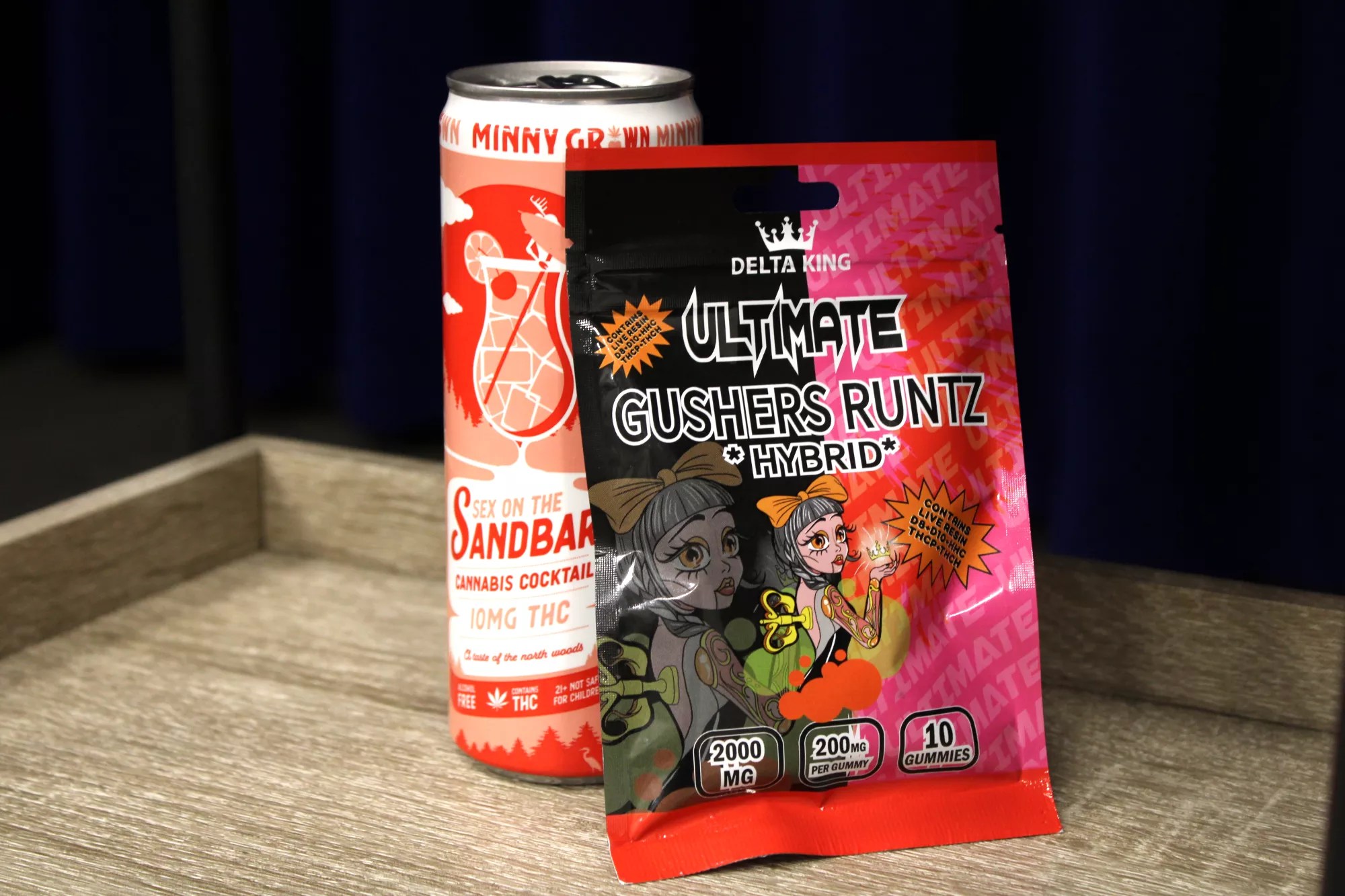
Morgan Fischer

Audio By Carbonatix
Today, Arizonans can walk into a Valley smoke shop and grab a package of THC-infused “Snooper Doodle” cookies or drive to Total Wine & More and purchase a THC cocktail.
These products exist outside of highly regulated marijuana products sold in licensed dispensaries throughout the state. Arizona smoke shops, alcohol retailers and convenience stores can sell Delta-9, THC-infused and other hemp-synthesized products without age requirements, child-proof packaging and other restrictions.
For the moment, that is.
Arizona Attorney General Kris Mayes announced Monday that her office will crack down on the sale of these products. She hopes that unlicensed retailers will stop selling these products right away. But she offered shops a 30-day grace period to get out of the weed business, citing confusion related to hemp products in the federal farm bill.
Starting April 24, her office, as well as local law enforcement and prosecutorial offices, will take enforcement action against unlicensed businesses that continue to sell THC-infused edible products. Thirty days from now, “this kind of stuff won’t be sold outside of a dispensary,” Mayes said at a news conference at her Central Phoenix office.
This crackdown began last March when Mayes’ office issued an opinion to close that loophole. The opinion prohibited the “sale of Delta-8 THC products and other Hemp-synthesized intoxicants – whether currently existing or developed in the future – to include Delta-9 THC and similar derivatives.”
Yet sales continued, and Mayes said her office has watched them only escalate. “So we felt that we needed to take action,” she said.
Mayes said she worries that products with cartoon-driven branding – with their bright colors and anime characters – could fall into the hands of children. She held up “Snooper Doodle” THC-infused 250 mg cookies, “Sex on the Sandbar” cannabis cocktail and Delta-5 “Dogg Lbs Dogg Treats” with everyone’s friendly uncle Snoop Dogg on the bag. One of her investigators purchased these products at a Valley smoke shop. Another bought the cocktail at Total Wine & More.
“These have the same THC that gets you high,” she said, holding up – and low-key endorsing? – the cookie package with a cartoon airplane on it. “You can’t even get something like this in a regulated store.”

Two THC-infused products that Arizona Attorney General Kris Mayes said can be easily purchased outside dispensaries.
Morgan Fischer
Marijuana groups react
The Attorney General’s office has not seen evidence that anyone but adults are using these cookies. Nonetheless, the party’s over. “This is obviously not legal,” she said. “And we are going to enforce the law.”
Arizona Dispensaries Association executive director Anna Torrez called Mayes’ decision to reserve THC for dispensaries “a critical step in ensuring the safety of our communities, families and consumers.”
Meanwhile, Arizona NORML, a marijuana legalization organization, views the move as a blow to the small retailers who “will never be able to afford the $10 to 20 million dollar license to sell these products,” the organization wrote on social media.
“Listen to what Arizona’s new prohibitionists are saying,” the post continued. “It’s not that these products ought to be regulated and taxed – it’s that these products ought to be controlled by the limited license oligopoly that is Arizona dispensaries.”
Mayes did emphasize that much of the enforcement of these products – after the 30-day deadline – will be a case-by-case and retailed-by-retailer. Businesses that keep selling could face fines of up to $20,000 per sale, per violation for “unlicensed delivery” under 2020’s Proposition 207, which legalized recreational marijuana for those 21 years or older, Mayes said.
This money could quickly add up. A retailer who sold off a case of 24 THC-infused drinks could, in theory, tally $480,000 in fines.
Further penalties, including potential jail time, could follow. If an individual were to engage in “continued willful defiance” and target “children or young adults like this in places around schools” in their selling of these products, they could potentially face class 2 felony charges. But Mayes said most of the enforcement will fall on businesses.
In any event, 30 days from the news conference is April 23. That’s your deadline, retailers and THC enthusiasts. Everything must go. After that, it’s see you at the dispensary.